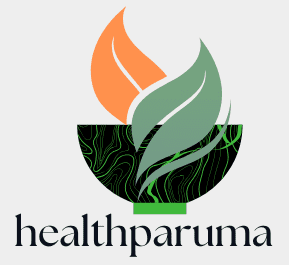Learn about Post Stress Disorder, its causes, symptoms, diagnosis, and effective treatment methods. Expert insights
What is Post Stress Disorder?
Post Stress Disorder, commonly known as Post-Traumatic Stress Disorder (PTSD), is a psychiatric condition triggered by experiencing or witnessing traumatic events such as accidents, natural disasters, violence, or severe emotional distress. According to the American Psychiatric Association (APA), PTSD can significantly affect daily life and interpersonal relationships.
PTSD can manifest in different ways among individuals. While some people recover naturally over time, others may require targeted interventions. Recognizing PTSD early and seeking appropriate care greatly enhances recovery outcomes.
Causes of Post Stress Disorder
The development of Post Stress Disorder is primarily linked to traumatic events. Common triggers include:
- Severe accidents
- Physical or emotional abuse
- Combat or military exposure
- Natural disasters
- Sexual assault or harassment
- Sudden loss of a loved one
Medical studies suggest a complex interplay of genetic predisposition, environmental factors, and neurological responses in developing PTSD (National Institute of Mental Health).
Genetic research indicates certain individuals may have an increased risk of developing PTSD due to their genetic makeup. Environmental factors, such as a lack of social support or ongoing stress, can exacerbate symptoms and complicate recovery.
Symptoms of Post Stress Disorder
Identifying Post Stress Disorder early is crucial for effective management. Symptoms typically include:
- Recurring flashbacks or nightmares
- Severe anxiety and emotional distress
- Irritability and anger outbursts
- Avoidance of reminders associated with trauma
- Difficulty sleeping and concentrating
- Feelings of detachment and emotional numbness
The Mayo Clinic emphasizes that symptoms might appear immediately after trauma or may manifest weeks or even years later.
Symptoms of PTSD can significantly interfere with day-to-day activities, work performance, and personal relationships. If symptoms persist for more than a month, it’s crucial to seek professional help.
Diagnosis by Medical Experts
Healthcare professionals, including psychiatrists and psychologists, diagnose PTSD based on specific criteria outlined in the Diagnostic and Statistical Manual of Mental Disorders (DSM-5). Diagnosis involves:
- Psychological evaluation
- Patient history and symptom assessment
- Clinical interviews
Studies by the American Psychological Association underline the importance of professional diagnosis for accurate identification and treatment.
A thorough assessment is vital to differentiate PTSD from similar conditions such as generalized anxiety disorder or depression, as these conditions require different treatment approaches.
Treatment Options for Post Stress Disorder
Effective treatments for PTSD often combine psychotherapy, medication, and lifestyle adjustments. Proven treatment methods include:
1. Psychotherapy
- Cognitive Behavioral Therapy (CBT): Helps patients recognize and alter negative thinking patterns.
- Exposure Therapy: Enables gradual exposure to trauma-related memories in a controlled environment.
- Eye Movement Desensitization and Reprocessing (EMDR): Facilitates reprocessing traumatic memories.
2. Medications
- Antidepressants such as Sertraline (Zoloft) and Paroxetine (Paxil) are FDA-approved for PTSD treatment.
- Anti-anxiety medications may alleviate acute anxiety symptoms.
3. Lifestyle Modifications
- Regular physical exercise
- Stress management techniques such as meditation and yoga
- Maintaining a strong social support network
Research from Harvard Medical School demonstrates significant improvements with a holistic treatment approach combining therapy, medication, and lifestyle changes.
Additionally, alternative therapies like acupuncture, art therapy, and animal-assisted therapy have shown promise in helping individuals manage PTSD symptoms. These complementary approaches can provide additional support and relief alongside conventional treatments.
Coping Strategies and Support
Managing PTSD requires active coping strategies. Professionals recommend:
- Joining support groups
- Maintaining open communication with loved ones
- Keeping a daily routine
- Engaging in relaxing activities
Developing personalized coping strategies can empower individuals with PTSD to regain control over their lives. Techniques such as journaling, mindfulness practices, and breathing exercises can significantly enhance emotional resilience and stress management.
Importance of Early Intervention
Medical experts emphasize early intervention to enhance recovery outcomes. The quicker individuals seek professional help, the higher the likelihood of successful symptom management and long-term recovery.
Early intervention not only accelerates recovery but also reduces the risk of secondary issues such as substance abuse, depression, or chronic anxiety disorders, ensuring a more comprehensive and lasting improvement in quality of life.
Frequently Asked Questions (FAQs)
Q1. Can Post Stress Disorder be completely cured?
While PTSD symptoms can significantly diminish or disappear with proper treatment, some individuals may experience periodic recurrences. Long-term management strategies effectively reduce symptom frequency and severity.
Q2. How common is Post Stress Disorder?
According to the U.S. Department of Veterans Affairs, around 6% of the U.S. population experiences PTSD at some point in their lives, with higher rates observed among military personnel and trauma survivors.
Q3. Is PTSD the same as anxiety?
Although PTSD shares anxiety symptoms, it is a distinct disorder characterized primarily by trauma-related triggers and experiences.
Q4. What happens if PTSD is left untreated?
Untreated PTSD can lead to severe mental health issues, including depression, substance abuse, and severe anxiety, significantly impacting quality of life.
Experiencing symptoms of Post Stress Disorder? Don’t wait—
Taking control of Post Stress Disorder is possible. Reach out and begin reclaiming your peace and wellbeing today!

